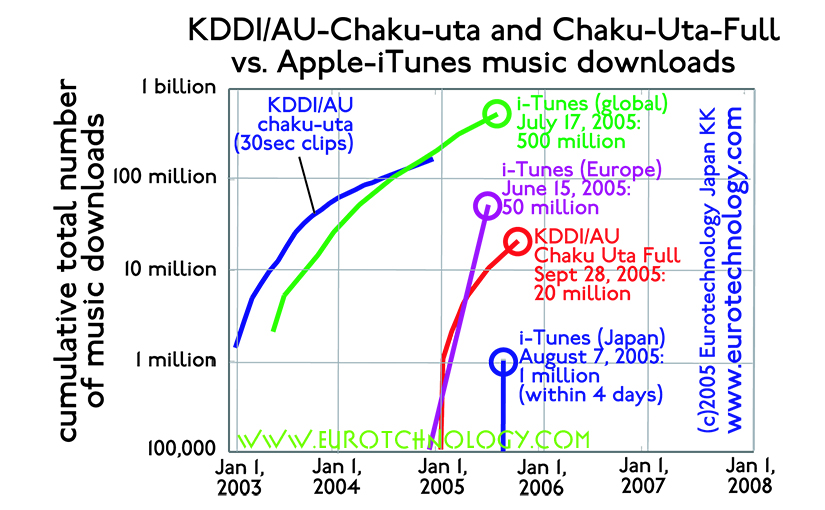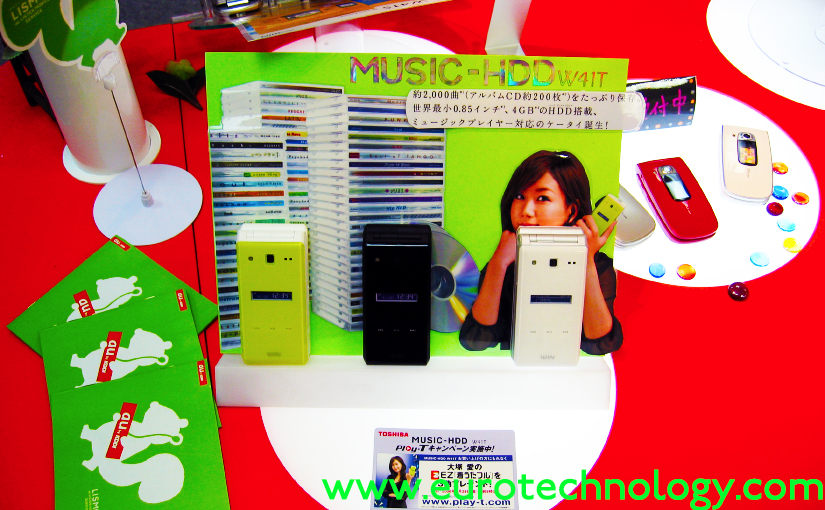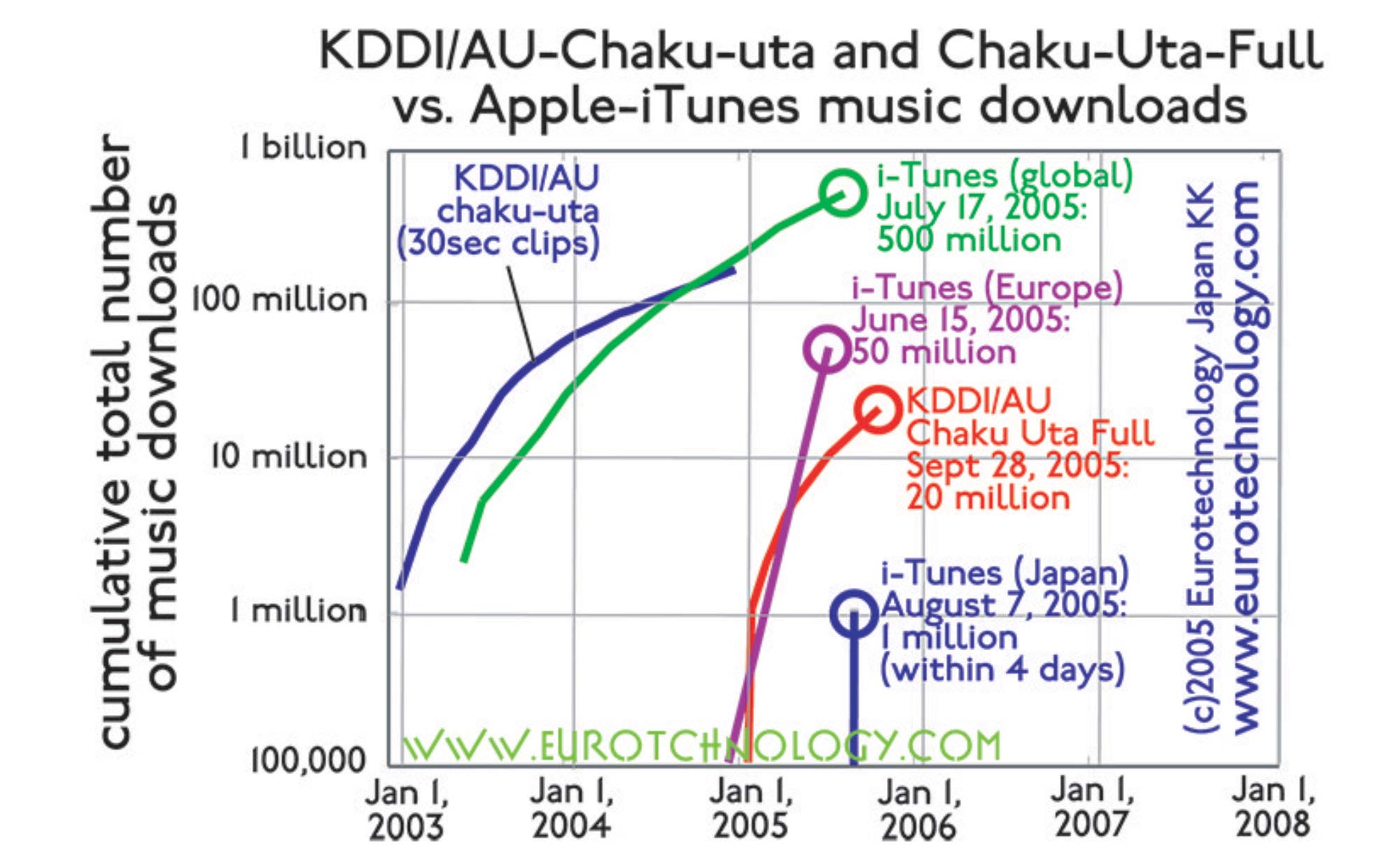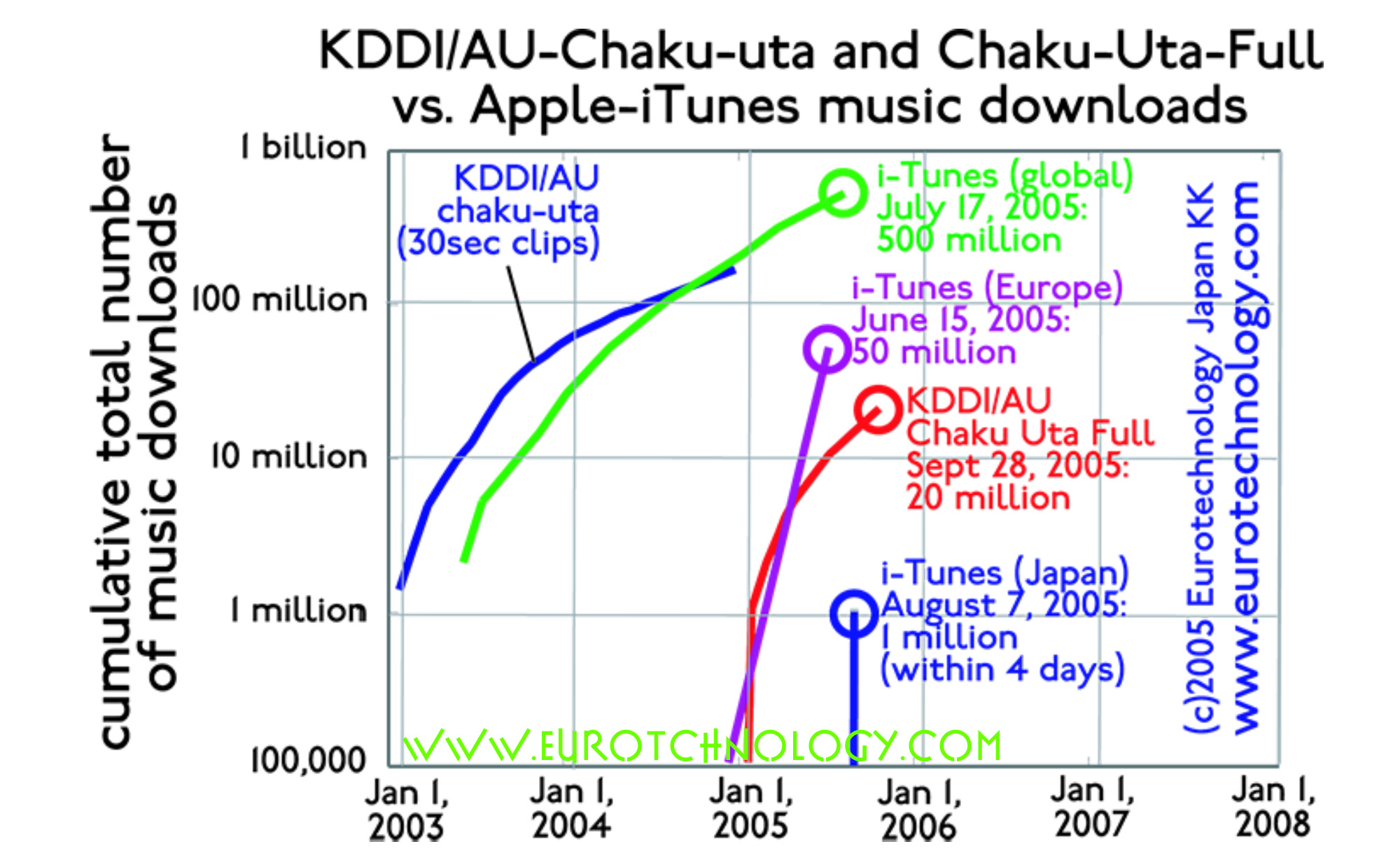Tag: mobile music
-

Yamaha Mobile Orchestra – mobile phones musical instruments
Using the motion, acceleration and position sensors to convert smart phones into musical instruments Yamaha Mobile Orchestra uses mobile phones equipped with motion and acceleration sensors as musical instruments Copyright (c) 2008-2013 Eurotechnology Japan KK All Rights Reserved
-

iPhone for Japan? iTunes/iPod phones?
There is a lot of discussions about whether Steve jobs is going to announce an iPhone or iPod-Phone at the Apple Computer Developer’s Conference in SF – according to the headline report on Saturday May 13th, 2006 in Nihon Keizai Shinbun ( the world’s largest business daily ) it’s already known since May this year…
-

Mobile music taking off in Japan
i-Tunes Music Store (ITMS) kick-started internet music downloads in Japan i-Tunes Music Store (ITMS) kick-started internet music downloads in Japan, which were falling just before ITMS arrived: i-Tunes & i-Pod themselves are under attack in Japan i-Tunes & i-Pod themselves are under attack by KDDI‘s “au Listen Mobile Service” – LISMO!, which includes sophisticated viral…
-

Music phone for KDDI LISMO! mobile music service including 4 GigaByte Hard Disk launched
Music player phone for KDDI LISMO mobile music service LISMO! competing with iPod and iTunes (Tokyo, Feb. 6, 2006 by Eurotechnology Japan KK) In the last few days KDDI/AU‘s “MUSIC-HDD” phone (W41T by Toshiba) went on sale nationwide in Japan. The W41T includes a 4 Gigabyte 0.85 inch (22.6mm) diameter Hard Disk Drive (HDD), and…
-
NTT Docomo acquisitions: Tower Records – No music, no life!
Docomo acquires music retail know-how and a laboratory for mobile payments at the point-of-sale NTT Docomo acquisitions: 32.34% of Tower Records a major share of Japan’s second largest Credit Card issuer Nikkei reports several NTT Docomo acquisitions: DoCoMo will use a total investment of around YEN 10 Billion (approx US$ 100 million) to acquire 32.24%…
-

i-Tunes stores and mobile music
Japanese consumers clearly express their preference:99.8% of music downloads are to mobile phones, and 0.2% of music downloads are to PCs and portable MP3 players. Clearly Japan’s internet music services did not offer what consumers want: internet music downloads to PCs and portable MP3 players recently dropped from 12,300/day during Jan-March 2005 to 11,600/day during…
-

Chaku-Uta-Full: 5 million mobile music downloads in Japan
KDDI pioneers full lengths mobile music song downloads via 3G Chaku Uta Full achieves 5 million downloads by April 3, 2005 KDDI/AU announced that 5 Millions Chaku-Uta-Full songs have been downloaded until April 3, 2005. Download our 230 page analysis of KDDI/AU Download our “mobile music” report Note added: on June 15, 2005, KDDI reported…
-

Chaku-uta-full: 3 million mobile music downloads
Japan is the pioneer of mobile music Ringing tones and mobile music are pioneered in Japan Put until mid-2004, cumulatively KDDI (Japan’s No. 2 mobile operator) sold more “chaku-uta” mobile music song clips in Japan alone than Apple sold music via iTunes globally. This fact shows both the power of mobile music, and also the…
-

Music on mobile – as a killer application
More Chaku-Uta mobile music downloads by KDDI in Japan than by Apple’s iTunes globally Turns out that music is a killer application on mobile – we are working on a number of projects in the mobile music field. We just completed our “Mobile Music Japan” report. With an incredibly much smaller potential customer base KDDI/AU…
-
Global Mobile phone ring tone market
Global mobile phone ring tone market (source: Consect LLC, WSJ) in 2004: W Europe: US$ 1.5 billion (37.5%) Japan: US$ 1.0 billion (24.0%) Korea: US$ 0.5 billion (12.5%) US: US$ 0.3 billion (7.5%) ROW: US$ 0.7 billion (17.5%) ——————————— Total: US$ 4.0 billion (100%) see: “Mobile Music in Japan” (report, pdf file) Copyright·©1997-2013 ·Eurotechnology Japan…